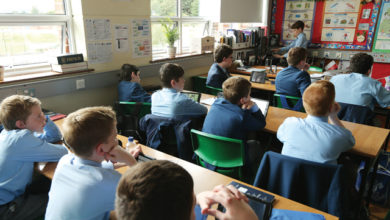Closing the gap

A Northern Ireland Audit Office (NIAO) report has found that over £900 million of funding pledged to the narrowing of the educational attainment gap in Northern Ireland made no “demonstrable difference”.
Closing the Gap — social deprivation and links to educational attainment, the report published by Northern Ireland’s Comptroller and Auditor General Kieran Donnelly, analyses the impact of two Department of Education interventions, Targeting Social Need (TSN) and Sure Start. Of the £138 million of annual funding targeted towards children from socially deprived backgrounds in the 2019–20 academic year, £102 million was accounted for by TSN and Sure Start.
From the beginning of TSN in April 2005, £913 million of funding has been provided, but the report found that the Department does not have any data to “clearly demonstrate” if this funding has improved the academic performances of pupils with Free School Meal Entitlement (FSME). While “educational attainment of all school leavers is improving”, the report states that “progress to close the attainment gap between FSME and non-FSME pupils has been slow”.
The gap in achievement of five GCSEs including English and Maths has “not changed significantly in the last 15 years”, with a long-term trend of a 30-percentage point gap having opened up. The gap currently stands at 29 percentage points, as compared to 32.1 percentage points in 2005-06.
Aside from a lack of progress, the report also found a lack of accountability when it came to these funds, with there being no requirement for schools to spend TSN funds solely on supporting their pupils from socially deprived backgrounds. The report found that the Department “has not collated information on the use and impact of TSN funds” and that “a new TSN Planner, designed to capture such information, has had very low uptake”. Only 6 per cent of schools provided a return of the TSN Planner for the 2018–19 academic year.
Donnelly said: “I understand that improving educational attainment is more than a matter of providing funding and that a broad range of factors contribute, including school leadership, classroom teaching, and parental and community involvement. However, for over 15 years, targeted funding totalling hundreds of millions of pounds has been provided to support disadvantaged pupils and close the attainment gap.
“It is simply unacceptable that the Department does not have adequate information to establish how these funds have been targeted by schools or the effectiveness of the interventions used… The issues raised in my report must be addressed urgently in order to maximise outcomes for pupils, and value for money for taxpayers.”
Other key findings in the report include:
• 50 per cent of FSME school leavers achieved at least five GCSEs including Maths and English in 2018–19, compared to a departmental target of 60 per cent. In comparison, 79 per cent of non-FSME leavers achieved at least five GCSEs including English and Maths.
• There has been a persistent gap between FSME and non-FSME pupils in Key Stages 1, 2 and 3 in Communication, Using Mathematics and Using ICT. Targets for the percentage of pupils achieving the expected level were missed in both Communication and Using Mathematics in Key Stages 2 and 3. No targets were set for Key Stage 1 or for Using ICT.
• Provision of Key Stage assessment data is a statutory requirement, but the report found that only 14 per cent of primary schools and 15 per cent of post-primary schools provided assessment data for the 2018–19 academic year. This was blamed on the industrial action taken by teachers that ended on 28 April 2020.
• As part of the New Decade, New Approach agreement, an expert panel was commissioned to examine the links between persistent educational underachievement and socio-economic background as a matter of priority. The expert panel provided an interim report on its findings in April 2021 and are expected to submit their final report and action plan to the Education Minister by the end of May 2021.
|
£913 million 96,686 6% 49.5% 32.1% 29% |
The report also states that, as of the 2018–19 academic year, the Department is not meeting its own targets set out under the 2011 strategy Count, Read: Succeed — A strategy to improve outcomes in Literacy and Numeracy. The strategy sets out targets “for the levels of achievement expected in the long term if the Department was to be successful in meeting its aims of raising overall standards of achievement in literacy and numeracy and closing the gap in achievement”.
With no targets set for Key Stage 1, performances in Key Stages 2 and 3 during the academic year 2018–19 were below all of the milestones targeted by the Department.





